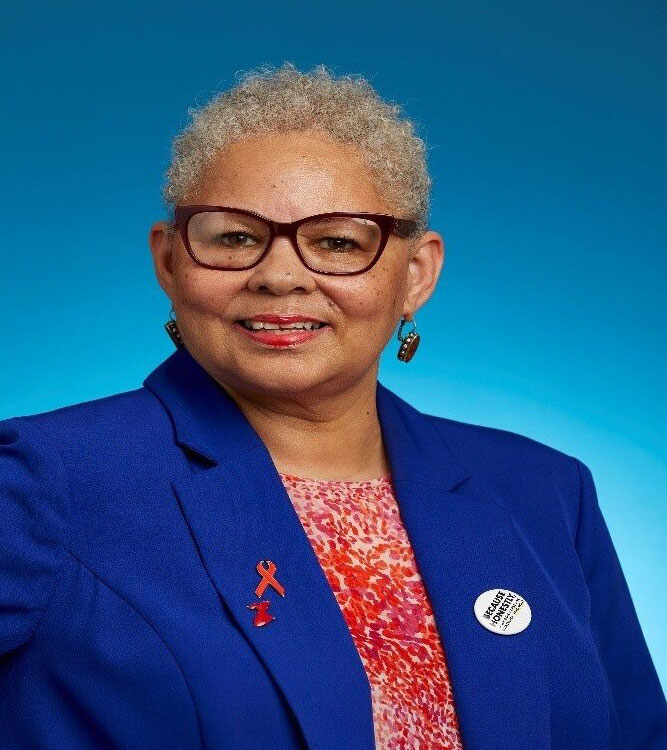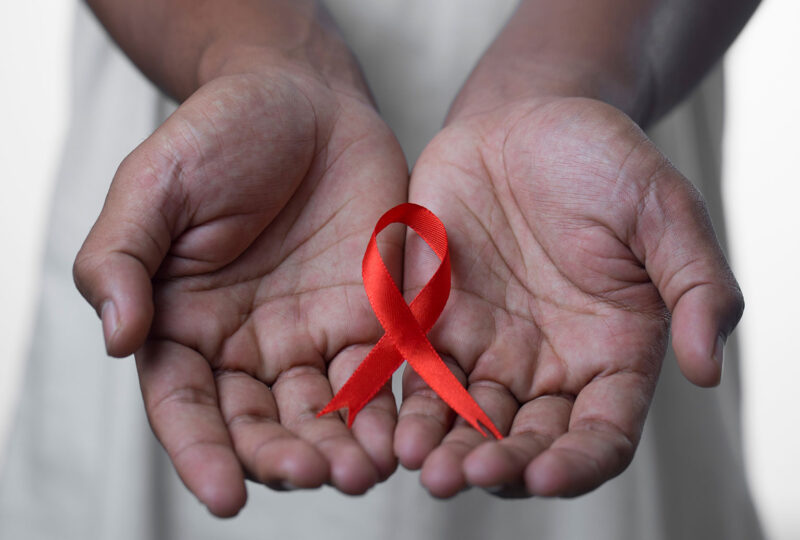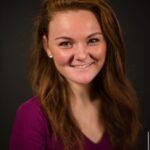When Melanie Reese was date raped and diagnosed with HIV, she thought her life was over.
“I thought I was going to die,” the now 70-year-old said. “I realized I didn’t have proper education about what exactly HIV was, how it’s transmitted, how to remain healthy. I had to teach myself.”
But she did more than just teach herself. Reese, now in her 24th year living with HIV, works to spread education about the disease to other older adults. She serves as the executive director of Older Women Embracing Life (OWEL), a support organization for women aging with HIV.
“I needed to share [my education] as wide as I could,” she said. “Looking back [my HIV diagnosis] was actually the best thing to ever happen to me because [before my diagnosis], I was a people pleaser. … I [had to] turn the camera to face me so I can really see. I began to know who Melanie really was.”
The HIV awareness advocate said she wants to empower other women to take control of their health as well.
“When you see commercials … you see the LGBTQ community, on those ads and then in pamphlets,” she said. “Like for instance, PrEP and PEP, you don’t see [straight] women on those brochures or the billboards or anything.”

Reese said she didn’t even know women could get HIV when she was first diagnosed.
“It fueled my mission to make sure women knew that HIV is something they could acquire if they’re not using healthy and safe sex practices,” she said. “This society doesn’t value women, so they don’t know how to value themselves.”
But the struggle to feel valued extends beyond just women living with HIV, Reese explained. Older adults with the condition often experience a great deal of fear related to their health.
“For part of the population that is aging with HIV, they are afraid of being rejected, discriminated against,” she said. “A lot of these long-term survivors, they have lost several partners and … most of their friend base. And these were people who were rejected by their families, [or] their families are no longer here. And so, they feel that they’re gonna have to go back into the closet, be isolated and die alone.”
Most older adults living with HIV, Reese said, worry they won’t get the proper care they need.
“People are considered aging with HIV at 50,” Reese said. “But that doesn’t include the verticals who have the same co-occurring chronic issues as somebody who, in a regular society, needs a geriatrician and they won’t take them. … But if they did see them, they would see they have the same conditions as those that are 70 and 75.”
Reese explained that HIV causes the body to internally age faster.
“HIV accelerates the aging process by 10 to 15 years,” she said. “So chronologically, I’m 70, but I’m internally 80 to 85. … They’re gonna have to stop looking at chronological age as the only age they go by.”
HIV accelerates the aging process by 10 to 15 years. … They’re gonna have to stop looking at chronological age as the only age they go by.
Luckily, Reese said she has received better care since learning more about HIV and advocating for herself. She also hopes that through her advocacy efforts older adults living with HIV can get equal and equitable care.
“As long as I have breath, it’s gonna be used to uplift, amplify and add voice and volume to issues that must be addressed,” she said.
As long as I have breath, it’s gonna be used to uplift, amplify and add voice and volume to issues that must be addressed
OWEL offers monthly video meetings and visits with pharmaceutical representatives. In the past, the group has held HIV and hepatitis C testing events and partnered with other organizations to administer flu vaccines, booster shots and oral cancer screenings.
Along with her work at OWEL, Reese served 14 years as a member of The Greater Baltimore HIV Health Services Planning Council. She’s an active member of Johns Hopkins Community Research Advisory Council and works with the International Community of Women Living with HIV in North America.
Among other things, she’s also collaborating with the Maryland Coalition Against Sexual Assault and an organization called Ribbon, which works throughout the United States and internationally to provide trauma-informed intervention for cisgender black women living with HIV.
“One organization alone can do some things. … You build a coalition of several organizations, not necessarily all about women,” Reese said. “[There are] trans organizations, sex work organizations, substance organizations, sexual assault organizations coming together. [This] really amplifies, raises the volume, and more can get done. … We’re all whole people and we need to be treated like that. We have more in common than we have different.”

